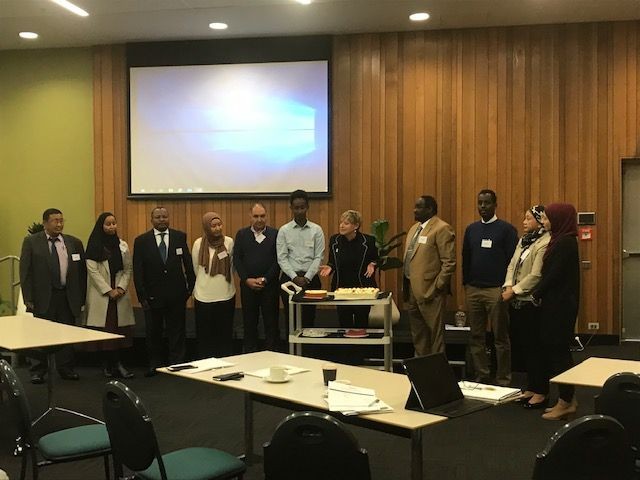Refugee Forum seeks answers to how best to integrate
Refugees all over the world face an uphill struggle integrating into society. A Refugee Forum I attended last Wednesday in Christchurch, New Zealand, that's April 24, was organized by the Canterbury Refugee Resettlement and Resource Centre (CRRRC) and had the theme: "Unleashing the full potential of refugees". Here is what happened and a photo of the speakers at the event.
Many of the speakers focused on the tragic murders at two mosques on 15 March in Christchurch and how the Muslim and refugee communities dealt with the aftermath. However, the main thrust of the day was the resettlement challenges facing refugees and how they integrated into the community. As Dr Arif Saeid, chair, Refugee Council of New Zealand, pointed out, these include not speaking the local language; lack of familiarity with the new culture or way of life; not being able to drive; the fact that qualifications obtained outside New Zealand are not recognized in New Zealand; and a reluctance to go out because he or she is visibly different.
Refugees also pointed out a number of things that made integrating into society difficult. They said the following: "I think employees usually look at my name and my ethnicity before they look at my CV. There are many times I am not even shortlisted for interviews".
"I think it is too late now. When I first came, I really wanted to learn and work but now think I am too old".
Regarding debt they said the following: "I can't afford it, it is too expensive and I don't want to borrow, what about if I can't pay it back."
"Too much thinking; can't concentrate, I have a headache."
"I give the priority to my children, for me it is finished".
The breakout sessions looked at the issues of health and well-being; education and housing.
One of the groups looked at health and well-being and I was a member of it. It noted that health was very much inter-related with employment and when it came to answering the question: What does health and well-being mean to you? the answer was straightforward. It was social, spiritual, cultural and mental. It is a question of self-identity involving roots.
Among the numerous challenges they face, they said the system lacks choices or opportunities for refugees.
The solution for integration starts with employment opportunities which have to come from central and local government. This also requires a unity of different ethnicities rather than competing with each other. Policies also have to be reviewed to come up with a strategy that works in terms of equality and equity.


Comments